Hi friends, and happy Tuesday.
Nick pointed out to me late last week that we have been in Egypt for exactly one year. Crazy! It’s hard to believe how much has changed in that time, and I think some reflection is in order. So instead of an essay this week, I’m sharing a few things I’ve learned from a year in Egypt as an expat, plus photos from around Cairo that I’ve never previously published. With that said, is there anything you want to know about Egypt, or life abroad in general? I’d love to answer any questions you have, either in the comments or in a future post.
Also, a fun announcement: in a couple days, I’ll be talking about everything I ate in Vienna as a guest contributor on Jolene’s
. Jolene is one of my favorite people on Substack and has supported me since day 1 of this creative journey. I can’t wait to share our collaboration with you, but if you want to get it straight from the source, go subscribe now!Wishing you a wonderful rest of your week,
Sam
When we initially arrived in Cairo, I thought I would never get used to this place. Everything just felt like too much. If you’re new here, check out my very first post about the city’s unique brand of unruliness, which will give you an idea of why I felt that way:
I feel settled now, which I see as a testament to humans’ adaptability. I no longer mind the traffic (I even drive here!), I’m friendly with all the street dogs on my block, and I can usually tell one variety of citrus from another, which was a struggle for months. And yet, it’s clear this place will never belong to me in the way that San Jose and D.C. and New York all have. This is because I can never really belong to it—Cairo is where I live for now, but it is not truly home. I am here for a set period of time, relegating me to the status of an outside observer.
Observer status is not all bad, though. I’ve learned plenty about Egypt just by watching and listening, and have learned even more about myself. Here are my takeaways from one year of scary, exciting, weird, confusing, and beautiful expat life.
Egypt is enormous and diverse. You would need years to really see it all.
I always knew this country was large, but it feels truly massive. There are so many cities and world-class tourist sites to visit. Before we moved here, I assumed we’d be able to see them all. I now doubt that will be the case, even though we’ve traveled in-country whenever there was an opportunity. Nick and I have seen a lot in the past year—Sharm el Sheikh, Alexandria, Luxor, Hurghada, Fayoum Oasis—but we still haven’t even toured everything we want to see in Cairo, let alone the rest of the country.
The sad truth is there is just too much for us to see in the time we have in Egypt. I view this problem as a microcosm of life itself: the world is too big and our days on Earth too few to do everything we want to do. We have to choose what to prioritize, then put our horse blinders on and be thankful for all the amazing things we do get to experience.
Egyptians are profoundly class-conscious, which can be uncomfortable as an expat.
While Americans are class-conscious, we like to feign belief that no one is better than anyone else. In Egypt, there is no pretending. Social standing is integral to most interactions—if you want to refer to someone by a generic title (like “Mr./Ms.” or “Sir/Ma’am”), you choose the title according to the person’s job or social class. You might address a working class man as rayyis while a man with a white-collar job would be called ustaz. You’ll never have to guess what to call someone, because it’s immediately clear who belongs to what class based on, among other things, their clothing (for example, many working-class men wear the galabeya—a traditional robe—and the wealthier a woman is, the less likely she is to wear a hijab). I have not always found this to be true in other countries.
To be clear, I don’t want to make any value judgments about Egyptian culture, which is why I tend to shy away from talking about it in this forum. I just want to point out how strange the class system feels to me coming from the U.S. I said above that my limited time in Egypt mostly relegates me to the status of an observer, but participating in the class system is unavoidable. Because I am pale and blonde, people immediately pick me out as a foreigner from a Western (read: rich) country. They therefore place me as belonging to the higher social classes and treat me accordingly. This is uncomfortable for me, as there is a long, fraught history of foreigners coming to, ruling in, and exploiting Egypt, but that’s a story for another day.
You can’t really “travel like a local,” in Egypt or anywhere else.
I hate this catchphrase. I have a full-page rant about “traveling like a local” that might deserve its own post someday, but here’s the short version: being a tourist means you are merely passing through a place, and no amount of riding public transportation, hanging out in dives, or eating street food will allow you to experience it like locals do. This is especially true if you are from a rich country and visiting a place where relative poverty and oppression is the norm. As a tourist, you can limit your contact with and exposure to dictatorial governments. You can freely express your opinion. When you get tired of dirt and disorder, you can retreat to the comfort of lodging that is almost certainly nicer than most locals could ever hope for. And at the end of your trip, you get to go home to your own country. Unlike locals, you have an escape route.
Whenever something annoys me—like wanting to wear shorts but feeling I shouldn’t expose too much leg, or businesses never having correct change, or police randomly blocking streets and forcing me to drive 20 minutes out of my way—I try to remind myself that most Egyptians have to put up with these frustrations forever, while I will leave one day and never have to deal with it again. That is an incredible privilege.
Friends of different ages can help you gain perspective.
This is true no matter where you live, but belonging to a small expat community whose members are in vastly different life stages has driven the point home for me. In recent months, I’ve found a group of female expat friends who are closer in age to my mother than to me. You would think we wouldn’t have much in common, yet they’ve all been through the same things I’m struggling with now (i.e. the loss of identity and agency that comes with following a husband abroad for his job). When I felt lost and rudderless, they assured me that my experience was normal and things would turn out okay. They reminded me that I must always do something only for myself—which is part of the reason I continue to write this newsletter. Their wisdom has been invaluable. And as a bonus, they taught me to play mahjong!
On the other end of the spectrum, the Cairo expat community has brought me into close contact with young kids for the first time since I was a kid myself. Just after we arrived, one of Nick’s coworkers took us for a walk around our new neighborhood with his three-year-old son, who I’ll call “Teddy.” Teddy was obsessed with leaves. Every couple feet, he’d grab my hand with clammy fingers and yank me down to his eye level so we could stare at the bushes growing next to the sidewalk. The bushes’ leaves had little white spots. Teddy would pluck a leaf and squeal “look! Dots!!”, then proudly hand it to me like it was a precious gift. And you know what? Those leaves were actually pretty amazing. Had it not been for Teddy, I would never have noticed them.
Elsewhere
Rather than digging around for links this week, I wanted to share a song I’m playing on repeat right now. The artist, Ahmed Saad, is from Cairo, and the syncopated beat is unlike anything I’ve ever heard. I dare you to press play and not listen to it at least twice.
Photo of the Week: “No Airbags, We Die Like Men”
If there is a sentence that better encapsulates Cairo driving culture, I have yet to hear it. See you next week!


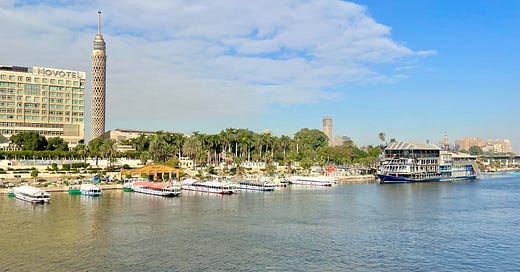




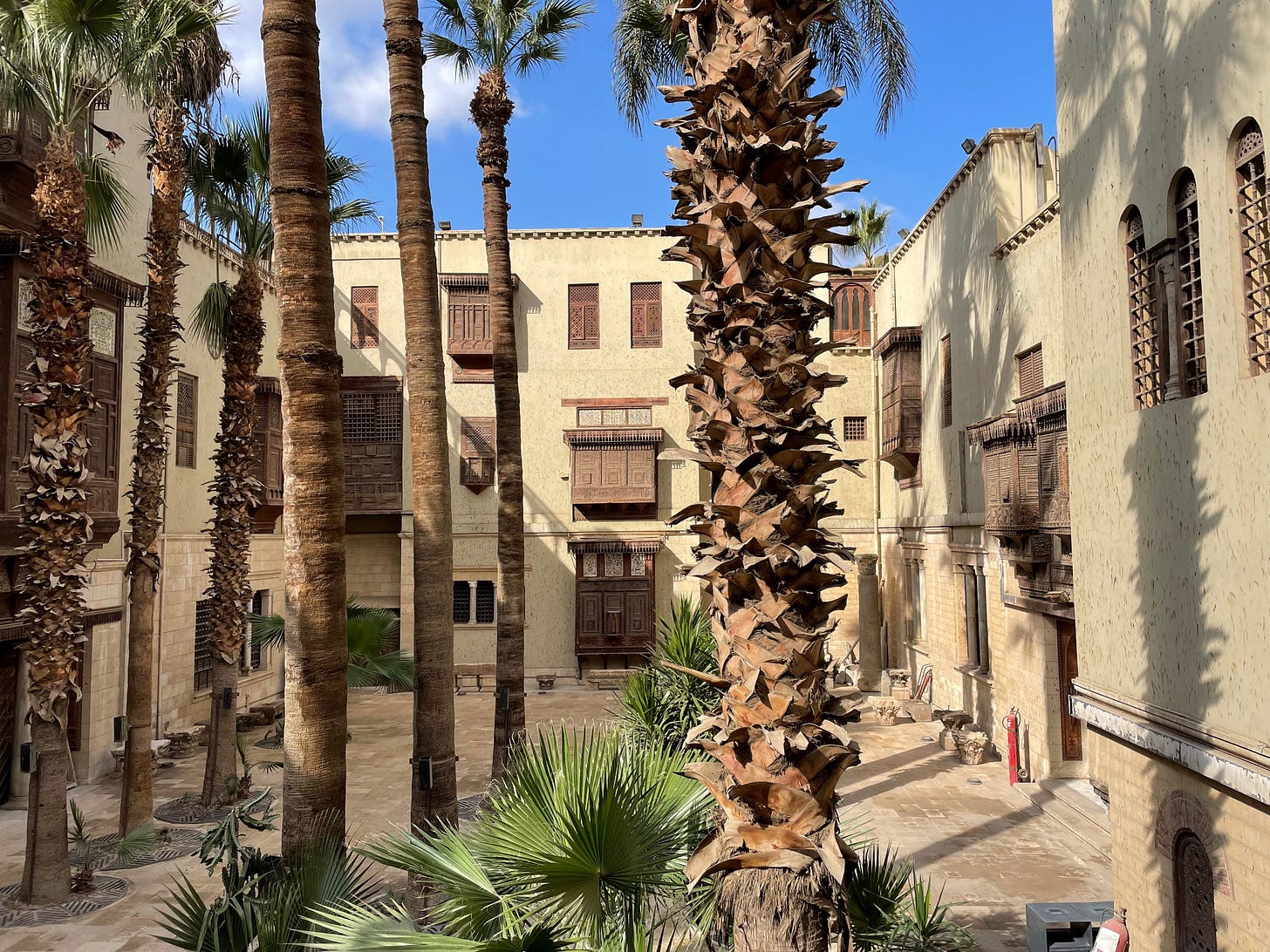
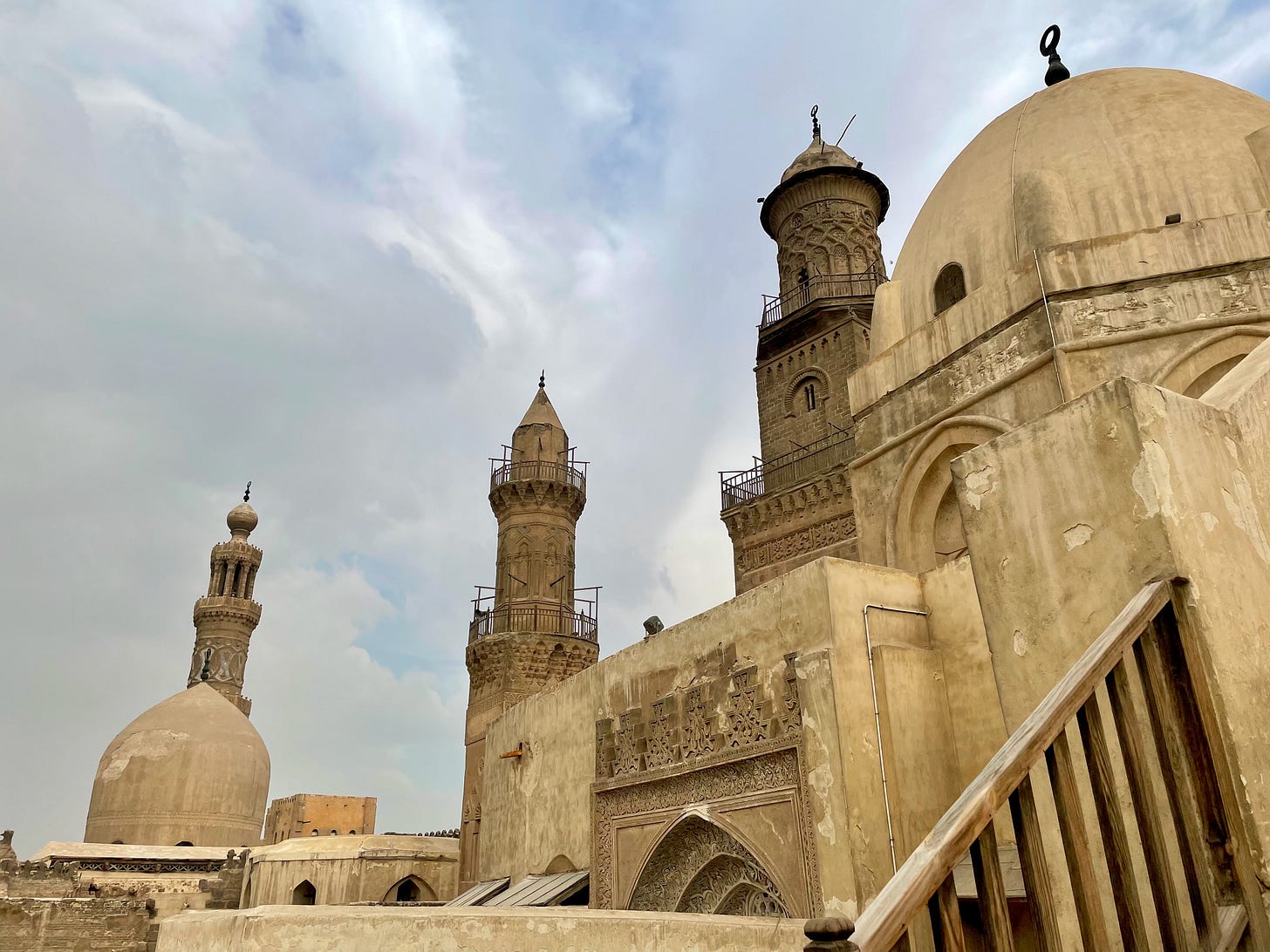
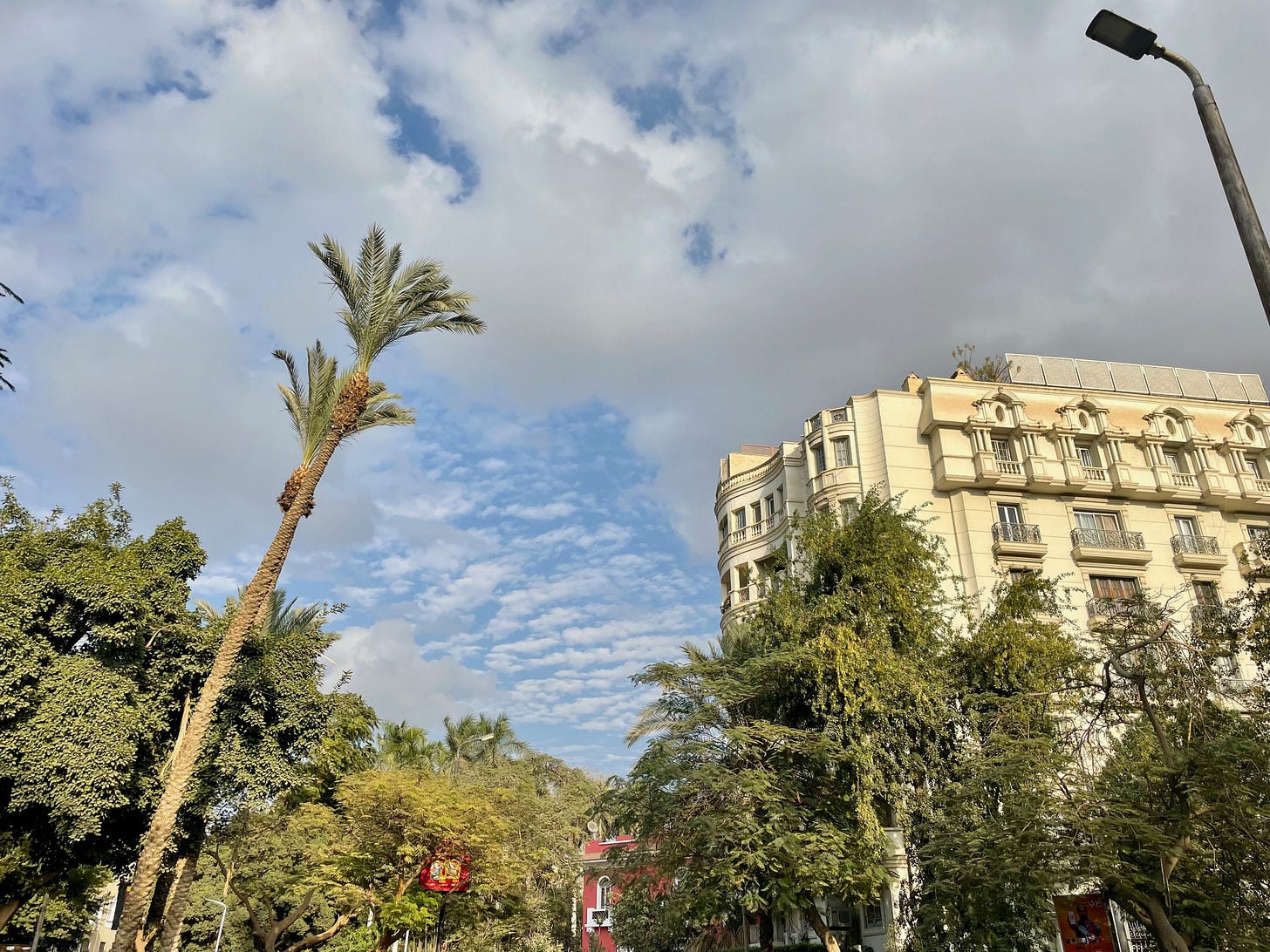
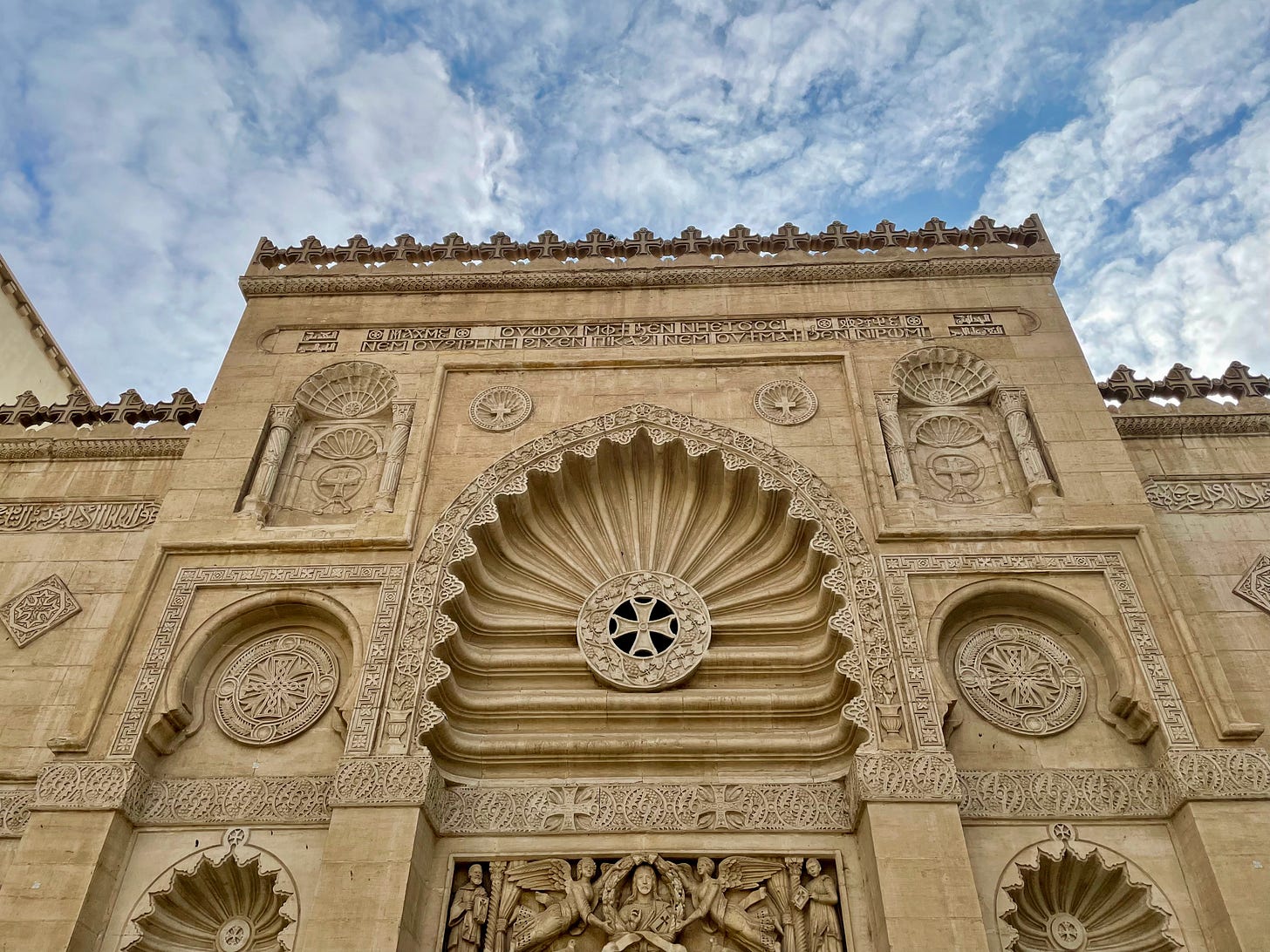
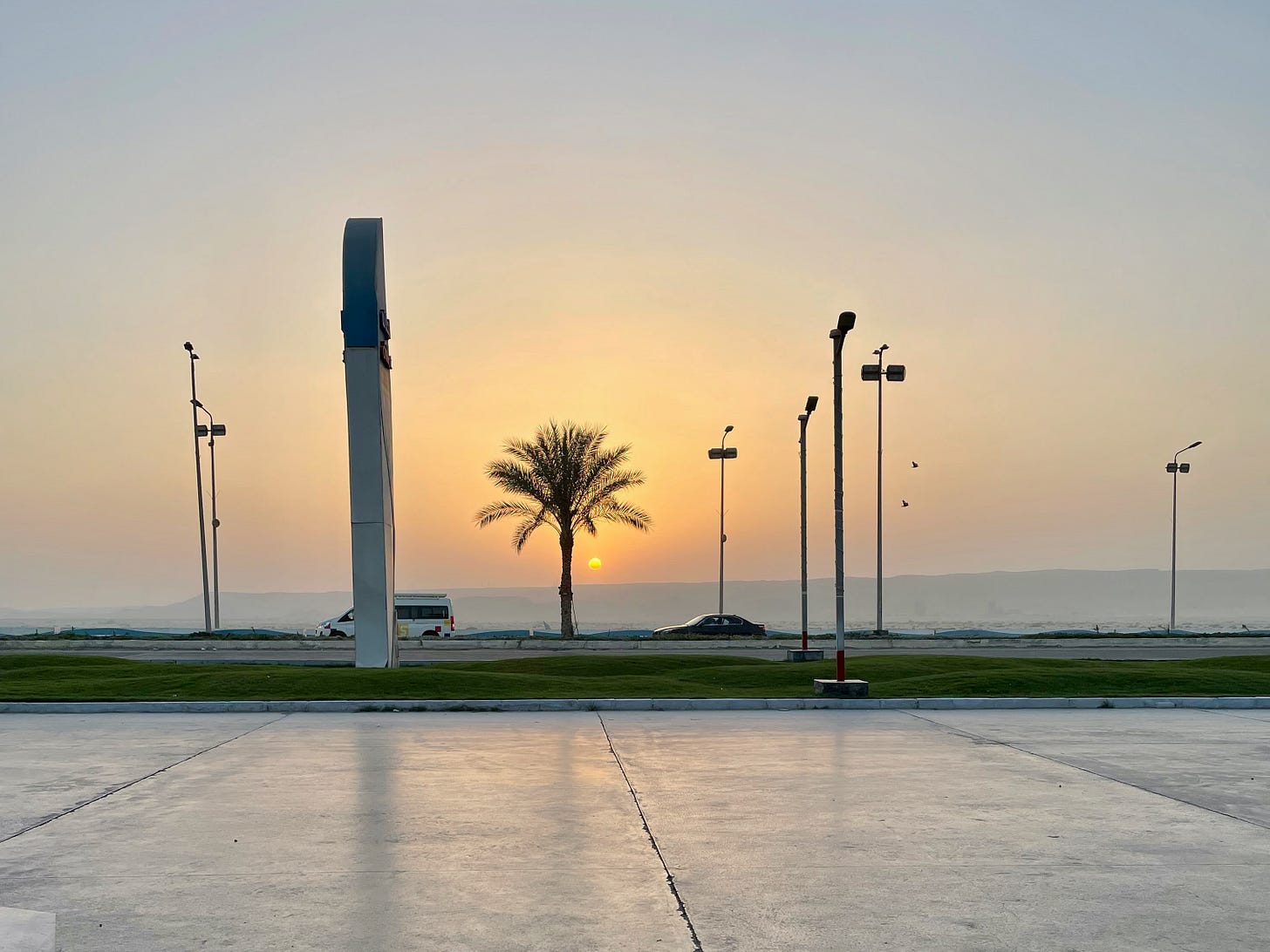
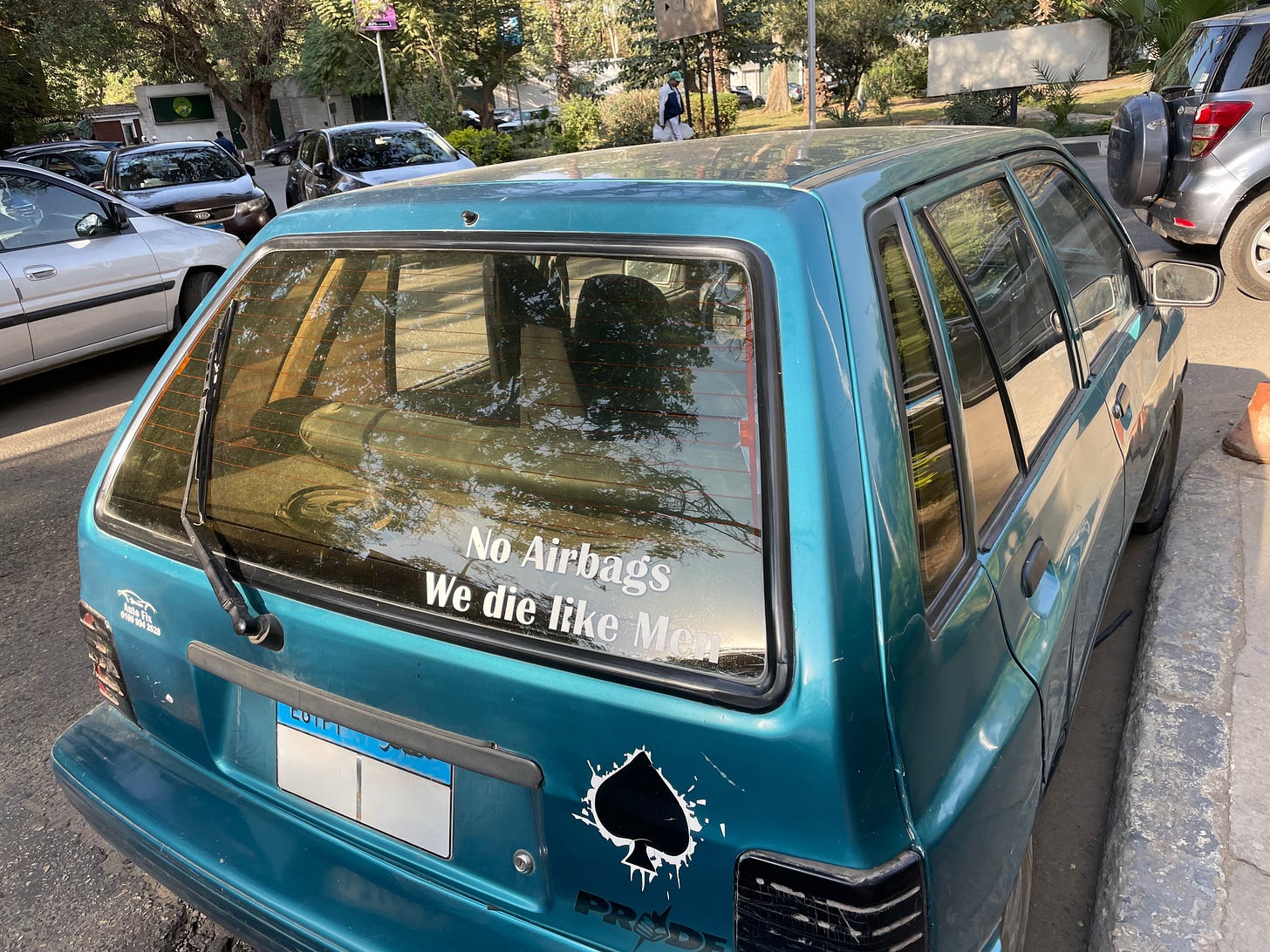
Interesting, as always. Looking forward to your post on Jolene's Substack, Sam.
"I have a full-page rant about “traveling like a local” that might deserve its own post someday,"
Please do.
"here’s the short version: being a tourist means you are merely passing through a place, and no amount of riding public transportation, hanging out in dives, or eating street food will allow you to experience it like locals do."
Reminds me of this quote and comment I wrote awhile back:
---
"In Coréens, Chris Marker observes that there are different ways of travelling: 'the Barnabooth way, the Genghis Khan way, and the Plume way.' In other words, those of the gentleman travellers, the conquerer and the one who humbly accepts the random upheavals of the journey. Marker writes that his own preferred method is to submit, Plume-like, to the haphazard events that befall him: 'to accept in their disorder the rhythms, waves, shocks, all the buffers of memory, its meteors and dragnets.' This approach is reflected in the aleatory character of Marker's travelogues, which flit spontaneously from one fact or observation to another, without attempting an ordinary narrative account of the place being visited. The intensely personal quality of Marker's response to other countries brings out the subjective, imaginative dimensions of travel, captured in the Romantic poets Gérard de Nerval's famous maxim that the purpose to travel is 'to verify one's dreams.'"
--Catherine Lupton, Chris Marker: Memories of the Future, p.43-44.
Reader's note: At nearly the same time Thomas Pynchon writes about the fourth way, now world dominant, known as Baedecker-land: the commercial and consumer class world of tourists and expats that has increasingly become a lifestyle magazine industry. These differ from the Barnabooths because the Barnabooths became what The Economist dubbed "Davos Man," the globe trotting transnationals that effectively founded a borderless meta-nation of their own, for which geography is roughly beside the point. They differ from Ghengis Khan because they swapped resource extraction with wage service industry. It's not enough to call them post-modern Khans because real Khans still exist.
Most Baedecker-land travellers think they're Plume travellers, but their strange gravitational attraction to beaches and scheduled, blocked out festivals betrays them.
---
Lastly, I feel you on expat friendships. The two years I lived in Dubai, I was instant friends with a wide variety of people who wouldn't have even bothered acknowledging me or me them in a public space in New Mexico or New York, being otherwise just completely irrelevant to each other. But in Baedecker land, Anglophone network means survival and resources.